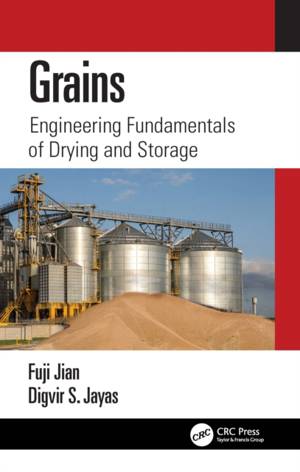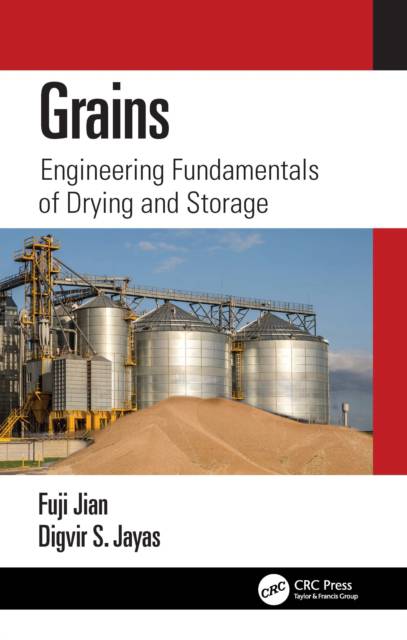
- Afhalen na 1 uur in een winkel met voorraad
- Gratis thuislevering in België vanaf € 30
- Ruim aanbod met 7 miljoen producten
- Afhalen na 1 uur in een winkel met voorraad
- Gratis thuislevering in België vanaf € 30
- Ruim aanbod met 7 miljoen producten
Omschrijving
Drying and storage are two significant unit operations in the food industry and are applied to both raw and processed products including cereal grains, oilseeds, legumes, flour, noodle, coffee, and cornstarch. The common characteristic of these materials is that all of them are hygroscopic and contain water. The hygroscopic properties are influenced by their physical properties, which are influenced by their storage environments such as bins, warehouses, bunkers, and temporary storage structures. This book focuses on the storage and drying of bulk products in these storage structures.
On many occasions in our work with the grain storage and drying personnel especially our graduate students and industry contacts, we found a book explaining the fundamental principles of grain storage and drying is needed. Therefore, the primary objective of this book is to help readers understand the fundamental principles of grain storage and drying and develop a well-informed approach to solve grain storage and drying problems. Technologies for grain storage and drying are advanced through research; therefore, literature review and background on each topic has also been included. The book is generally intended for grain storage and drying students, engineers, and scientists. As reflected in the contents which are presented at several levels of depth, this book will serve well readers with different backgrounds and interests. An effort has been made to allow for independent reading of different sections, and to make a large part of this work accessible to a non-mathematical audience.
The authors have combined their experience of teaching grain storage and drying to undergraduate and graduate students in the faculties of Agricultural and Food Sciences and Engineering. Material in the book is organized into broad topic areas: physical properties (Chapters 1 and 2), grain temperature and moisture (Chapters 2 and 6), water in biomaterials and relationship with its environment (Chapter 3), fundamental principles of aeration, drying, and rewetting (Chapter 4), and mathematical modelling of isotherm, drying, and re-wetting (Chapter 5).
We hope our readers will benefit from the contents of the book for many decades.
Specificaties
Betrokkenen
- Auteur(s):
- Uitgeverij:
Inhoud
- Aantal bladzijden:
- 478
- Taal:
- Engels
Eigenschappen
- Productcode (EAN):
- 9781032013985
- Verschijningsdatum:
- 24/12/2021
- Uitvoering:
- Hardcover
- Formaat:
- Genaaid
- Afmetingen:
- 156 mm x 234 mm
- Gewicht:
- 875 g

Alleen bij Standaard Boekhandel
Beoordelingen
We publiceren alleen reviews die voldoen aan de voorwaarden voor reviews. Bekijk onze voorwaarden voor reviews.











